What Stephen King Really Thinks About Some Of His Most Popular Movies
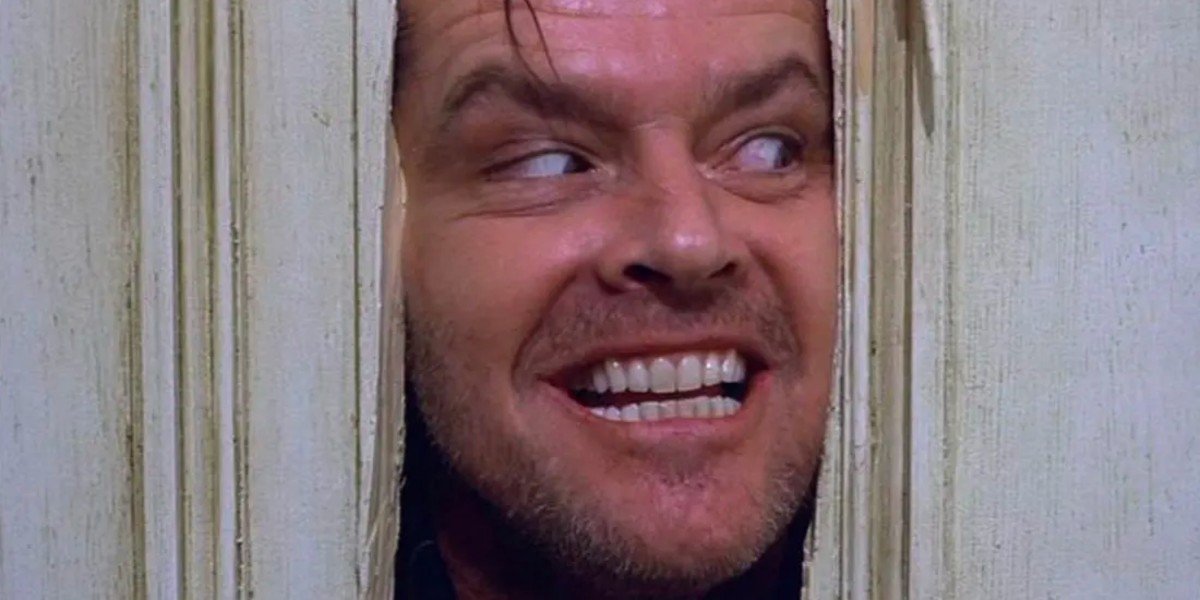
Stephen King is undoubtedly one of the most prolific authors in American literature. The author has written volumes upon volumes of literary texts in recent decades, many of which have been adapted into films. Currently, you can see It: Chapter Two and Doctor Sleep in theaters near you, for instance, while there are several other productions based on his material floating out there or currently in the works. The success rate, much like King's work, varies. When it comes to Stephen King movies, there are twice as many duds as there are stone-cold classics. Still, while King has been supportive of filmmakers adapting his books, he has also built a reputation as a tough critic.
Whether or not that distinction is justified, Stephen King has often been vocal about his feelings towards the various different adaptations of work — even if he doesn't always have nice things to say. The author will celebrate the movies he likes, but he won't mince his words if he doesn't think one floats his boat. Whether popular culture has deemed any one movie to be a classic or an absolute piece of trash, King holds his own court and voices his own opinions, whether or not they go with (or against) the norm. With that, let's take this time to explore Stephen King's thoughts — brutal or otherwise — on some of the most popular adaptations of his work. And yes, we'll definitely talk about his controversial feelings towards The Shining.
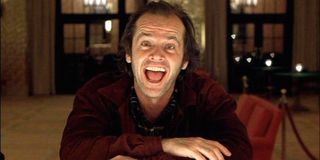
The Shining (1980)
We might as well get it out of the way first. Stephen King's disgruntled feelings toward Stanley Kubrick's adaptation of The Shining are legendary at this point. While there are many cinephiles who consider it one of the finest horror movies of the 20th century, King has been vocal about his distaste for the film adaptation. Recently, we wrote extensively about the various different reasons why King didn't care for Kubrick's movie, but the main gist is that King believes Kubrick went against everything the author accomplished in his self-reflective novel. He even took some of the changes personally.
From the first time we meet Jack Nicholson's Jack Torrance onscreen, Stephen King feels the movie is off. In King's novel, he wanted the alcoholic author to have a gradual decline into madness, unleashed by the terrors of the Overlook Hotel. From the moment we're introduced to this film version of Jack, however, we see the glimmer of madness in his eye. It's not a matter of whether or not he's unbalanced; it's waiting for the moment when he snaps. For many folks, it's considered an intriguing new direction for the material. For King, he felt it was a huge disservice to the story at hand. He also did not care for the changes made to the end, nor did he like how Wendy Torrance was portrayed. Suffice to say, though, he's vocal about his criticisms:
I think The Shining is a beautiful film and it looks terrific and as I’ve said before, it’s like a big, beautiful Cadillac with no engine inside it. In that sense, when it opened, a lot of the reviews weren’t very favorable and I was one of those reviewers. I kept my mouth shut at the time, but I didn’t care for it much... I feel the same because the character of Jack Torrance has no arc in that movie. Absolutely no arc at all. When we first see Jack Nicholson, he’s in the office of Mr. Ullman, the manager of the hotel, and you know, then, he’s crazy as a shit house rat. All he does is get crazier. In the book, he’s a guy who’s struggling with his sanity and finally loses it. To me, that’s a tragedy. In the movie, there’s no tragedy because there’s no real change. The other real difference is at the end of my book the hotel blows up, and at the end of Kubrick’s movie the hotel freezes. That’s a difference.
While Stephen King has talked about Stanley Kubrick's film on multiple occasions, this is one such example of when the author voiced his objections, courtesy of Deadline.
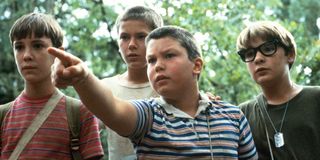
Stand By Me (1986)
On the other side of the coin, Stephen King has expressed very warm feelings towards Rob Reiner's immensely charming Stand By Me, which is based on his novella, The Body. It has been reported that during an early private screening for the film, King excused himself for 15 minutes after the film in order to recompose himself, then later told the director that the adaptation was, "the best film ever made out of anything I've written, which isn't saying much." He later told Reiner that the actor-turned-filmmaker "really captured my story," before claiming that it was "autobiographical." Indeed, it was later revealed by the director himself that he considers Stand By Me to be his personal favorite of his own movies, and it's understandable why.
Stand By Me is an immensely charming and heartwarming (and heartbreaking) film that captures the exuberance, tenderness, innocence, humor, and eventual melancholy that comes with youth. It captures the wide range of emotions that one finds in a King story almost effortlessly. It's easy to see how even Stephen King himself could be so taken by its whimsy. The author was so impressed by Reiner's take on his material that he later gave him his blessing to call his production company Castle Rock Entertainment, based on the town that's often at the center of several of his assorted stories.
CINEMABLEND NEWSLETTER
Your Daily Blend of Entertainment News
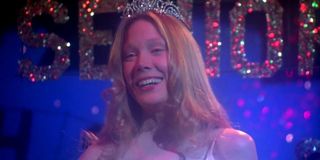
Carrie (1976)
Brian De Palma's Carrie is based on Stephen King's first published novel of the same name, and it has received a warm reception over the years. It is one of the few movies to be nominated for an Academy Award, and it has often been considered one of the best movies ever made based on a King property. Then again, the same can be said about The Shining, and we already know how the author feels about that particular movie. So where does King stand on Carrie? Admittedly, the author hasn't been as forthcoming about his thoughts on this film compared to other adaptations of his work, but he admitted in an interview in 2010 with Florida Weekly that he considers the film to be "good," although he was quick to claim it's "dated."
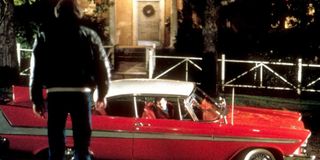
Christine (1983)
From the mid '70s through the late '80s, John Carpenter was on a roll, churning out classic after classic. Whether it's Halloween, The Thing, The Fog, They Live, Escape From New York, Starman, or Big Trouble in Little China, to only name a few, the prolific filmmaker knew how to make a splash. It was during this streak that he also made Christine in 1983, which has become a cult classic in its own right. Admittedly, King hasn't publicly revealed his thoughts on the film in full, but Carpenter claimed he received support from Stephen King while working on the adaptation, which suggests appreciation. Yet,when asked if he would make another King adaptation, Carpenter said, "Oh, hell no! That's work!" While that suggests that he's opposed to making a new movie in general, not simply another Stephen King adaptation, it could be argued by some that Carpenter doesn't really want to get any fire from King.
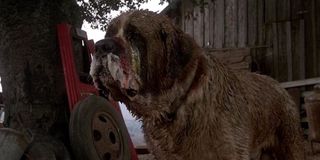
Cujo (1983)
Cujo came at a very turbulent time in Stephen King's life. Specifically, the author was deep in the throes of a cocaine addiction, and he claims that he "barely remembers writing it at all." It's fairly terrifying to imagine barely writing a book, but while Cujo doesn't retain many memories about the writing process of the book, he does seem to appreciate its film adaptation. The author claims in the aforementioned Deadline interview that the film about the vengeful dog is among "the best" of "the smaller pictures," suggesting that of the smaller productions of his work, he's fond of that one.
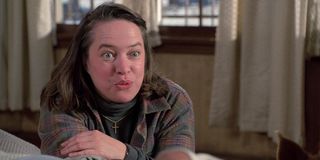
Misery (1990)
Stephen King hasn't always had a proven track record, but it's apparent that he really enjoys the work done by Rob Reiner to bring his words to life. In addition to claiming that Stand By Me is one of the best adaptations of his work, he has also praised Misery in an interview with Rolling Stone, claiming that it's a "great film" and that it is one of the top 10 best adaptations of his work in his book, Stephen King Goes To The Movies. Suffice to say, King felt very little, ahem, misery here.
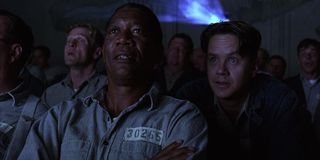
The Shawshank Redemption (1994)
For many folks, The Shawshank Redemption is one of the greatest movies of all-time, not simply one of the best Stephen King adaptations. The film, based on the author's novella Rita Hayworth and Shawshank Redemption, has received seven Oscar nominations, including Best Picture. It currently sits at the number one spot on IMDb's Top Movies of All-Time list, which is certainly nothing to sneeze at. Indeed, Stephen King isn't blind to the film's appeal. He claims in the Deadline interview that it sits next to Stand By Me as the best of his adaptations, and he is constantly quick to praise director Frank Darabont for his beautiful vision in the film.
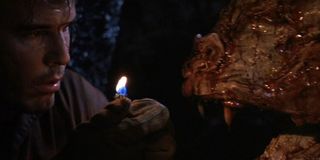
Graveyard Shift (1990)
Admittedly, Graveyard Shift isn't necessarily among the most famous of Stephen King's adaptations, so maybe it's placement on this list is subject. Nevertheless, it's one of the movies where Stephen King has voiced his objections, claiming in an interview with Deadline that it's one of the lesser transitions from the page to the screen of his work. He didn't go into too much detail about his displeasure, but he used a pointed word to describe it.
I guess there are a number of pictures that I feel like, a little bit like, yuck. There’s one, Graveyard Shift, that was made in the eighties. Just kind of a quick exploitation picture.
Yes, he said "yuck."
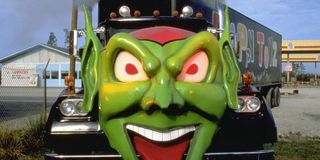
Maximum Overdrive (1986)
Of course, Stephen King isn't a stranger to the director's chair himself. He has made a movie of his own, 1986's campy Maximum Overdrive. Suffice to say, King learned the hard way that it's not very easy to adapt the work of Stephen King onto the screen. The film, based on his short story, "Trucks," is a perplexing movie, made when the author was still in the thrust of his drug addiction. The frenetic, absurd movie had a troubled production and a hard time in the editing room, resulting in a critically derided film that certainly isn't on too many top 10 lists of its own. Evidently, even King had to admit that his movie wasn't particularly good. In the book, Hollywood's Stephen King, the one-time filmmaker quotes that his directorial debut is a "moron movie," and he admitted to the Associated Press that he was "coked out of his mind" and "didn't know what he was doing" as he was making it. Evidently, King said that he doesn't intend to direct again, leaving the process to others.
As a result, Stephen King knows that it's not easy to make a movie. Despite his reputation for denouncing movies, the author has often kept quiet about a lot of his film adaptations, and he has generally only spoken up whenever he wants to praise them. Now that he's on Twitter, the writer is quick to celebrate a lot of the recent adaptations, even something as dire as The Dark Tower, likely because he knows that if it gets his stamp of approval, it might rake in more money. Only on select occasions has King openly dismissed a film, though he claims he wasn't particularly fond of the Children of the Corn sequels, for instance. In the end, though, while King doesn't always like the end product, it seems he's more often positive than not. Maybe...
Will is an entertainment writer based in Pittsburgh, PA. His writing can also be found in The Playlist, Cut Print Film, We Got This Covered, The Young Folks, Slate and other outlets. He also co-hosts the weekly film/TV podcast Cinemaholics with Jon Negroni and he likes to think he's a professional Garfield enthusiast.
Most Popular







